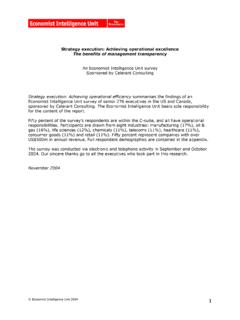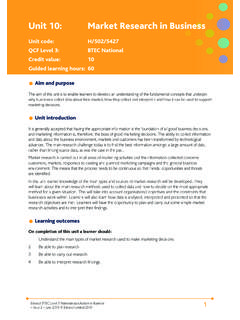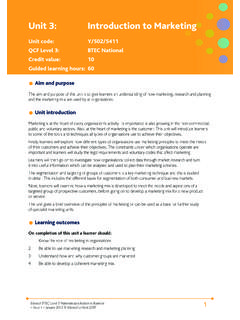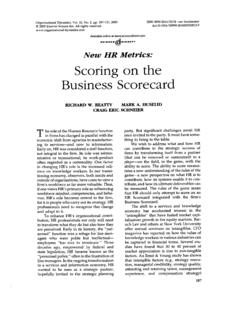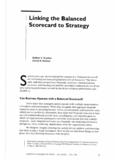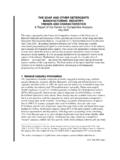Transcription of Talent strategies for innovation: Japan - EIU
1 LONDON26 Red Lion SquareLondonWC1R 4 HQUnited KingdomTel: ( ) 7576 8000 Fax: ( ) 7576 8500E-mail: YORK750 Third Avenue5th FloorNew York, NY 10017, USTel: ( ) 554 06000 Fax: ( ) 586 0248E-mail: des Tranch es 161206 GenevaSwitzerlandTel: (41) 22 566 2470 Fax: (41) 22 346 93 47E-mail: KONG6001, Central Plaza18 Harbour RoadWanchaiHong KongTel: (852) 2585 3888 Fax: (852) 2802 7638E-mail: size: 210mm x 270mmA report from the Economist Intelligence UnitSupported by the Government of Ontario, CanadaTalent strategies for innovation: 8/31/2010 10:37:37 8/31/2010 10:37:37 AMTalent strategies for Innovation: Japan Economist Intelligence Unit 2010 1 ContentsPreface 3 Executive summary 4 Introduction 5C-Level responsibility 7 Case study 1: Canon 8 The Japanese way 9 Case study 2: Dentsu 11 Characteristics of innovative Talent 12 Case study 3: Namco Bandai 13An evolving concept 14 Conclusion 16 Appendix: survey results 17 Talent strategies for Innovation: Japan2 Economist Intelligence Unit 2010 2010 The Economist Intelligence Unit.
2 All rights reserved. All information in this report is verified to the best of the author s and the publisher s ability. However, the Economist Intelligence Unit does not accept responsibility for any loss arising from reliance on it. Neither this publication nor any part of it may be reproduced, stored in a retrieval system, or transmitted in any form or by any means, electronic, mechanical, photocopying, recording or otherwise, without the prior permission of the Economist Intelligence strategies for Innovation: Japan Economist Intelligence Unit 2010 3 PrefaceTalent strategies for innovation: Japan is an Economist Intelligence Unit research paper, supported by the Government of Ontario, Canada.
3 The Economist Intelligence Unit s editorial team conducted the interviews, executed the survey and wrote the report. The views and opinions expressed in the report are those of the Economist Intelligence Unit Blair was the author of the report and David Line was the editor. Gaddi Tam was responsible for layout and design. Our thanks go to all survey respondents and interviewees for their time and 2010 Talent strategies for Innovation: Japan4 Economist Intelligence Unit 2010 Executive summaryTalent strategies for innovation: Japan examines how Japanese companies face the challenge of recruiting, nurturing and retaining talented people to ensure their organisations remain innovative.
4 Following on from a global survey of 179 senior executives on the same topic conducted in mid-2009, this paper analyses the results of a new survey of 50 senior executives from Japanese companies, comparing and contrasting them with the results of the earlier research. In doing so it reveals several aspects of Talent -management strategy that are unique to Japanese companies and suggests ways in which the pressures of competition and globalisation are forcing them to evolve these strategies . Its key findings include: Japanese companies place less emphasis on the importance of Talent management in their organisation s ability to innovate, and consequently delegate responsibility for it lower down the chain of seniority.
5 In the survey 56% of Japanese respondents rate Talent management for innovation as very important , compared to 75% globally. Consequently just 38% of Japanese companies report that C-level executives have responsibility for the formulation of Talent -management strategy, compared to 65% in the global results. But they think this is changing: 51% of respondents in the Japanese survey expect C-suite executives will be more involved in defining strategy in five years time, compared to 38% of global companies. Japanese companies are more likely to employ structured, long-term Talent -management strategies , and rely on internal development.
6 Employee loyalty and a lack of labour mobility mean many Japanese companies place a greater emphasis on graduate schemes to attract Talent , and internal training schemes to develop it. But these characteristics are changing with the demands of global competition: although 78% of respondents in Japan say training internal staff to fill key positions is a major part of their Talent -management strategy now, only 24% expect this to be the case in five years time. Japanese companies tend to value technical knowledge and learning ability over creativity and entrepreneurship.
7 The surveys uphold the common perception that Japanese companies value different attributes in their search for Talent than those elsewhere in the world: the most highly-valued attributes are the ability to learn quickly (picked by 78% of respondents) and a high degree of technical knowledge (60%), while the global results placed a higher value on creativity and collaboration. However, many Japanese firms, although emphasising the importance of a unified corporate culture, recognise the need to broaden their search for talented staff to remain innovative.
8 The pressures of globalisation and competition mean Japanese companies will have to look farther afield for Talent . Japanese companies are certainly aware of the need to attract employees from a broader pool of Talent : 82% of Japanese companies think the availability of Talent is a vital external factor for innovation strategy, far higher than the 55% of global companies that think so. Increasingly this means they will have to go where the Talent is: 48% think their companies will locate innovation centres where there is an abundance of Talent in five years time, versus 39% of firms in the global survey.
9 Talent strategies for Innovation: Japan Economist Intelligence Unit 2010 5 Introduction Talent management is the single most important factor for Japanese companies to continue to operate successfully on the global stage. So says Michihiro Homma, senior general manager of the Human Resources Development Centre at Canon, a camera and office equipment manufacturer and one of Japan s most successful international brands. That Canon thinks this way is testimony to the evolution of the Japanese corporation. Many of the Japanese companies that were at the forefront of the post-war economic miracle have seen their once seemingly unassailable competitive edges eroded by both lower-cost manufacturing rivals from Asia, and innovative competitors in technology and software from the West.
10 However, even as international competition has become tougher, faced with a shrinking domestic marketplace, many Japanese companies beyond the established electronics and automobiles exporters are seeking to expand their operations overseas. With the global marketplace evolving at an ever faster pace, the need to innovate more quickly has never been greater. Companies that don t acquire and nurture the best Talent available simply won t be able to innovate effectively enough to compete. Research conducted globally by the Economist Intelligence Unit in 2009 showed that 98% of companies regard Talent management as either important or very important to their ability to innovate.





